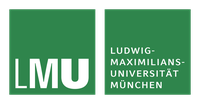Summary
- Topic Workshop — Tangled coastal connections
- When to (Europe/Berlin / UTC100)
- Where online (Zoom)
- URL https://www.signupforms.com/registrations/28076
- Download date as file get iCal file
Description
Tangled coastal connections: ethical tensions in materialities and imaginaries
20-21 January 2022, online via Zoom
Ludwig-Maximilians-Universität München
For registration, sign up here
Coastal regions, with their port cities and estuaries, are known for their connectivities: anthropogenic transactions and practices occur side by side with the washing up of materials and life forms as well as with cultural encounters and frictions. With this workshop, we seek to explore the forms of ethical negotiations occurring in such regions in order to identify frictions, projects, transitions, disjunctures, and also unencumbered settlements. These may relate to various flows - of goods, plants, animals, materials or people, as well as of information, knowledge, ideas - which are brought about by weather events, migrations, trans-shipments, encroachments, and also communication, translation and circulation.
Coastal regions are areas open to both oceans and hinterlands, which rely on the seas to allow for transport and are shaped by them in biophysical and cultural terms. They are linked to cosmopolitan aspirations, but also frequently policed. They are increasingly affected by changes in tides and weather events, by pollution and overuse, as also by arriving life forms and materials. They are at once nodes related to connectivity as well as sites for surveillance and disciplinary governance.
Seas are also variously imagined: as resource-rich or as waste sinks; as hostile, hazardous and unfathomable realms or convenient roads; as biodiverse ecosystems or recreational assets; and as ancestors, gods, gifts or treasures. They are equally imagined as frontiers ripe for exploitation using new and improved technologies, and as extensions of inland territories. As they narrate/engage with diverse coastal subjects and projects, citizens, experts, media, enterprises and governments often make ethical claims about what should and what should not be done. Hence our interest lies in how ethical claims are being used, produced or contested. How do these actors select, appropriate, combine, hybridize or contest circulating ethical discourses and knowledge? And how, in turn, do ethical discourses and the knowledge they produce recirculate to other contexts? Some current scientific discourses now refer to ethical buildings, heroic non-human actors, and unethical materials. Therefore, it is reasonable to conceive of an urban ethics of port cities and coastal infrastructures, other-than-human entities, imagined economies and spaces, as well as material flows and processes.
Our interest is in how ethics are used in the legitimation, production and contestation of priorities in port city planning, in the materialities of urban, coastal and ocean living, and in the imaginaries of the urban and the maritime. Our aim with this workshop is to make sense of tangled coastal connections, hopefully untangling some of the knots through a focus on urban ethics. We will hold discussions focusing on marine cultural heritage, coastal and marine environments, Blue economies, port planning, security, trade, consumption practices, or transnational governance. While we recognize that an ethical conjuncture - a turn to ethics - in science, literature and society is taking place, we welcome inquiries focused on historical as well as contemporary and future-oriented cases of urban ethics in action.
This workshop comes from the work of an interdisciplinary research group ‘Urban Ethics’ funded by the DFG. We comprise human geographers, social anthropologists and intend to achieve interdisciplinary dialogues.
Keynote speaker: Patrick Heidkamp (University of Southern Connecticut/University of Cologne)
Confirmed participants: Moritz Albrecht (University of Eastern Finland, Joensuu)
Young Rae Choi (Florida International University)
Oliver Klein (LMU)
Laura McAdam-Otto (Goethe University Frankfurt)
Arne Harms (Max Planck Institute for Social Anthropology, Halle)
Johannes Herbeck (Bremen)
Clemens von Loyen (LMU)
Gordon Winder (LMU)
Raúl Acosta (LMU)
Marie Aschenbrenner (LMU)
Supported by: Department of Geography, LMU Munich Institute of Social and Cultural Anthropology, LMU Munich DFG Urban Ethics Research Group, LMU Munich Rachel Carson Center for Environment and Society, LMU Munich
Conveners: Gordon Winder (LMU) Oliver Klein (LMU) Raúl Acosta (LMU) Marie Aschenbrenner (LMU)

